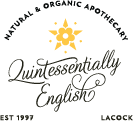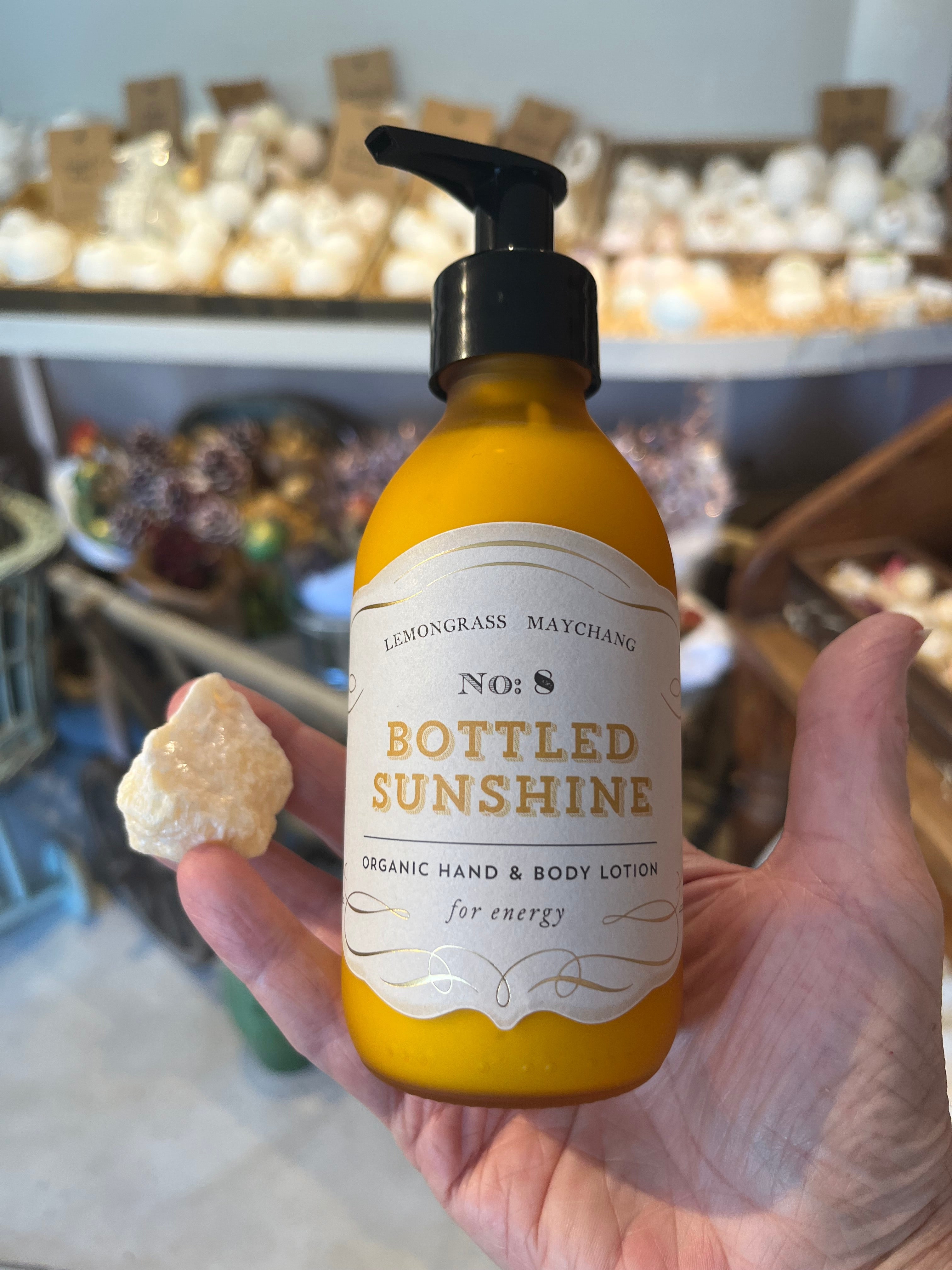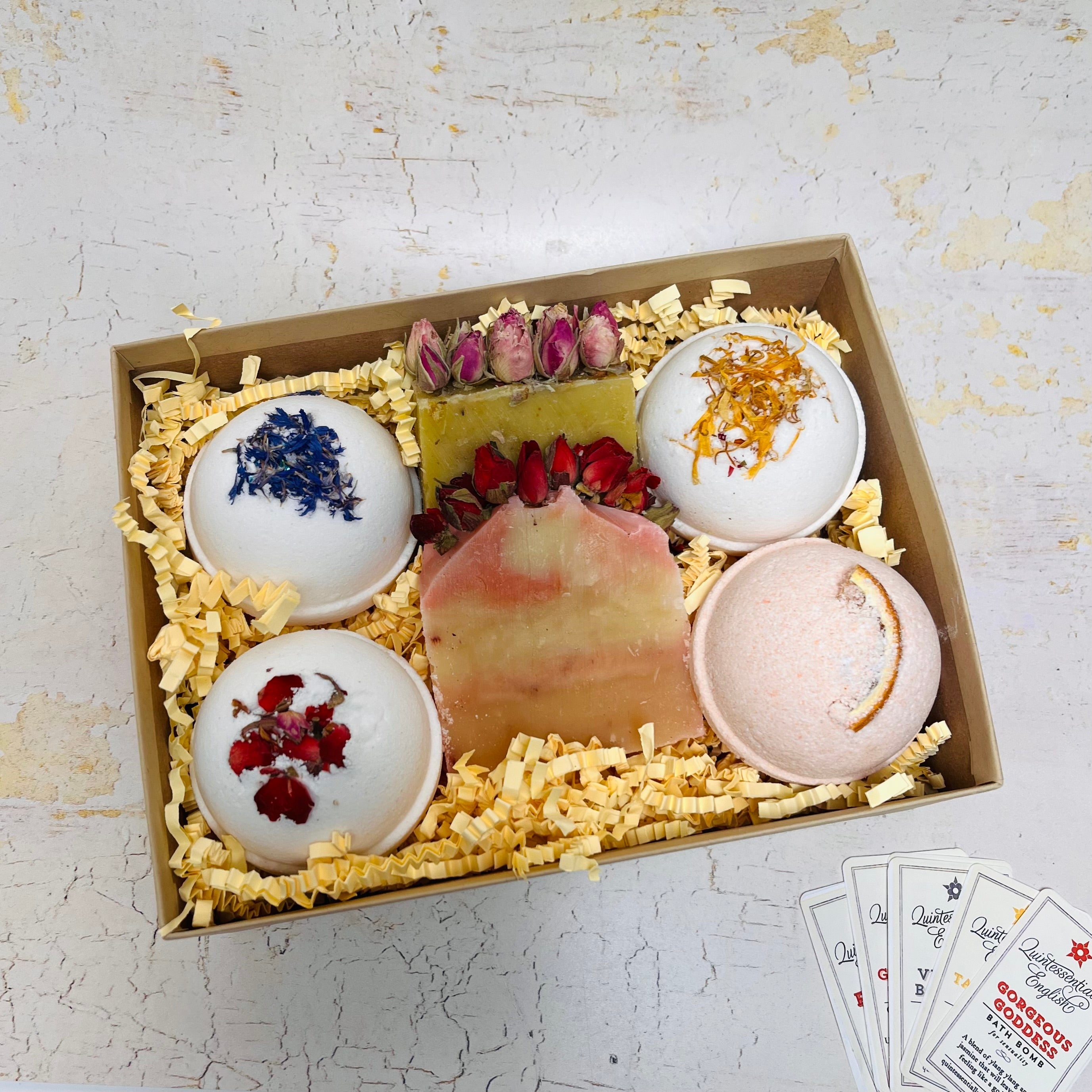Country Living Magazine

A wonderful 4 page article written by Caroline Atkins for Country Living, about how Jacqui started her soap and skincare business. Photographed by Andrew Montgomery.
Jacqui Sheard can remember when her shop was the village stores, back in the early 1980s, with that distinctive bouquet of disparate smells: cheese, washing powder, and ham sold by the slice. Now the 17th-century building is perfumed with the aromas of lavender, lemon, chamomile and rose, its shelves stacked with Jacqui’s handmade organic soaps, flower-scented bath crystals and blue glass jars of natural creams. The kitchen worktops are spread with baking trays in which soaps set, like cakes waiting to be turned out, and the shopwindow, overlooking West Street in Lacock, Wiltshire, wouldn’t look out of place in Cranford, or one of the other period dramas for which this screen-friendly, perfectly preserved National Trust village (no roadmarkings or telegraph poles) has provided the beautiful backdrop.
Quintessentially English began life in 1997, after Jacqui had been selling her soaps for a year from a tiny unit behind The George Inn across the road. She has known Lacock since her teens, when her mother moved here as a widow and Jacqui came for weekends, first from art schoolin Kingston and then from London where she and her husband met as graphic designers. The couple had already bought their own cottage – in the next village up the hill – and established their design studio, by the time Jacqui began experimenting with soap and looking for a place to sell it. “It was the late 1990s, when David and I had a slow patch in our design work, so when I read a feature in Country Living about making soap with essential oils, I had time to try it out – wrecking a couple of pans in the process,” she recalls.
The kitchen may have suffered but the soaps were a success. “David was my chief tester,” Jacqui says. “He dutifully tried out all manner of formulas.” She relished the left In the kitchen, Jacqui, Freya and Carlene mix herbs, rose petals and essential oils to create blends for each soap. “A couple of extra drops of an oil changes a scent completely,” Jacqui says hands-on mixing and making as a change from the more detached creativity of designing on a computer screen and decided to take the idea further. After reading up on the traditional ingredients and devising her master recipe, she produced a very small batch of totally homemade soap. Producing that first kilo gave her the satisfaction she’d felt at art school, and with her packaging and brochure design skills already in place, Jacqui realised she had a whole new business at her fingertips.
The couple’s design studio was still based in Bath at this point, so she started small, renting the work unit from the National Trust on a weekend basis. It was a step into the unknown and certain aspects of running the shop were daunting. “I deal calmly with thousands of pounds from our design clients, yet here I was, flustered about giving change from a fiver,” Jacqui says. However, by the end of the year, she was selling soap seven days a week and had even taken on an assistant. And then the West Street shop became free.
“We were up against dozens of applicants but the Trust keeps a balance between different kinds of business in the town, and we won the lease. The estate manager advised us to have a second income, so we decided to continue our design work, too.” Jacqui took out a small loan to cover the print costs of her packaging, and splits her time between the studio upstairs and the shop underneath. She now employs Carlene and Abigail who work in the shop during the week and help with soap-making, plus two assistants on a Saturday, enabling her to keep up with the increasing demand for her products. “Lacock has so many visitors, which is great for business, plus we sell by mail order through the website.”
They start early on their weekly making days, using a countertop hob and traditional pan in the little back kitchen to melt down the palm oil (from a Soil Association approve supplier) and coconut oil, which comes in 12kg boxes, then mixing it in a big yellow bucket with 25kg olive oil. “We manage just 25 litres in a day, because we take it in turns to stir it all by hand.” The sodium hydroxide ( also known as ‘lye’)
has to be added in the courtyard garden and involves wearing goggles and gloves. “Even the smallest speck will burn your skin,” Jacqui says. It’s the reaction between the alkaline lye and the acidic oils that makes them bind, rendering the pH level neutral so it is safe for skin. The production process can make the kitchen sound more chemistry lab than cottage industry, but there’s nothing futuristic about the recipes followed at Quintessentially English: soap has been made this way since at least Roman times. There’s a particular satisfaction in knowing that the method can’t be hurried – at the end of the afternoon, Jacqui, Carlene and Abigail place scoops of the mixture in earthenware bowls and add the appropriate herbs, ground rose petals and essential oils to create blends. “My favourite is the English Rose soap,” Jacqui says. “It reminds me of my grandfather’s garden, where I used to collect the flower petals and make a sort of primitive rosewater.” There are 17 soaps in the range – many inspired directly by the fragrances and properties of flowers, such as Buttercup and Neroli (“gently uplifting”), Lavender Fields (“popular for its soothing properties”) and Chamomile Lawn (“good for stressed skins”), and other aspects of the natural world: Morning Dew, Woodland Walk and Autumn Equinox. After adding the fragrances, the team then pour the mix into flexible wooden or plastic moulds and cake trays to set. “Most of the soaps are made in a block,” Jacqui says, “but we also have moulds to make shapes.” The tiny rosebuds and sprigs of lavender are pressed in by hand, and all Jacqui’s ingredients are as natural as possible. The garden is sheltered enough for her to grow lavender (although she buys extra from Kent), lemon balm and rosemary, and has an olive tree, the leaves of which Jacqui presses into her Moonbeam soap. The principal ingredient of her beeswax creams and lip balms comes from local hives, and her bath oils are blended on site. Jacqui now sells to customers across the UK, but getting through the tourist-less winters and balancing the two businesses can still be a challenge. She and David can at least schedule their work to focus on the design side when the Cranford team and other film companies come to the village. “I’m not complaining, because we benefit from the extra tourists the filming brings once programmes are aired,” Jacqui says, “but it does rather disrupt business. After all, if someone spots Greg Wise in the street, they’re not going to be thinking about buying Dandelion and Burdock soap, are they?”
Quintessentially English, 11 West Street, Lacock, Wiltshire.
(01249 730898; www.quintessentially english.co.uk). For a special CL reader offer on the soaps, see page 147.


